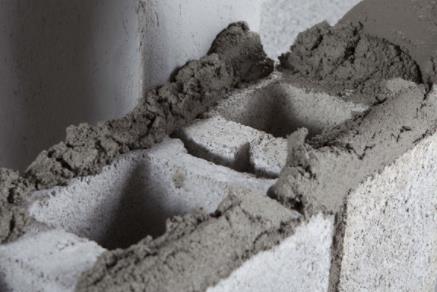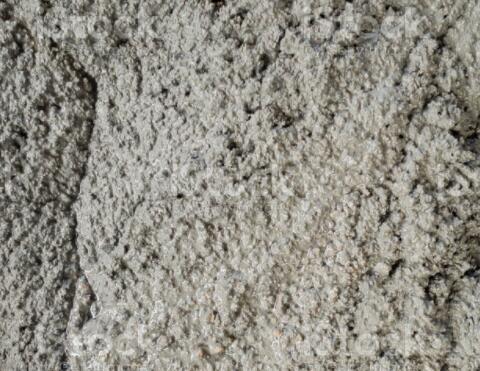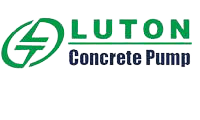Concrete and mortar are the necessary construction material and elements. Some people may find it is not easy to use them properly. Sometimes they blend them together as chaos mixtures and find it is hard to form a flat surface. So what is the difference between mortar and concrete?
Mortar

Mortar is a composite of cement, lime, sand or crushed fine stones mixed with water. It provides enough resistance to water and hardens quickly without any cracks. So it is mainly used for binding bricks together.
As the mixture formed in paste, mortar is not so soft as concrete and often used in joints for brick masonry.
As we all know, cement mortar is a mixture of cement, sand, water etc.. There isn’t aggregate in it and can not form a strong skeleton. So this type of material can not bear a strong load.
Advantages of Mortar:
- Easy to apply and place
- Cannot be pumped
- Portability to transport
Types of Mortar:
- Cement mortar
- Lime mortar
- Gauged mortar
- Surki mortar
- Mudd mortar
Property of Mortar
1. The workability of fresh mortar:
Mortar workability refers to whether it is easy in the masonry and other surfaces paved uniform, continuous thin layer, and closely bonded with the base property. There are two aspects including liquidity and water retention means.
Firstly, fluidity, mainly includes the type and amount of cementitious materials, the amount of water used, the type of fine aggregate, the shape of particles, the degree of coarseness, as well as gradation.
In addition, it also depends on the variety and dosage of mixed materials and admixtures.
In general, the flow of large mortar is commonly uesd in the substrate of porous absorbent material or in the dry heat conditions.
On the contrary,
On the contrary, the mortar with little fluidity is always used in the base absorbing little water, or construction under wet and cold conditions.
Water holding capacity is another aspect affecting mortar workability, which refers to the ability of mortar to hold water. In the course of using the mortar with poor water retention, bleeding and flowing mortar will appear.
It makes the bond of mortar and the base bond unfirm. And because the loss of water affects the normal bonding and hardening of the mortar, the strength of the mortar decreases.
The main factors affecting the water-holding capacity includes the type and dosage of cementitious materials, the variety, fineness, water consumption of sand and so on.
What’s more, mixing lime paste, fly ash, and other powder mixed materials can also improve the water retention of mortar.
2. The strength of hardened mortar:
When the quality of raw materials is certain, the strength of mortar mainly depends on the cement grade and cement dosage.
In addition, mortar strength is also affected by sand, additives, mixed materials, and masonry and maintenance conditions.
When the content of mud and other impurities in the sand is high, the strength of mortar is also affected.
Concrete

Concrete is the finished building material, versatile and strong, which is commonly seen in many constructions such as slabs, decks, and buildings.
It is composite of cement, sand and gravel, and other aggregates. Some water is added to provoke chemistry reaction in cement to strengthen concrete, meanwhile coarse aggregates and binding paste are also mixed in.
What’s more, the ready-mixed concrete mixture is available in the market, so you can just add water in a certain proportion.
Advantages of Concrete
- Strong and d urable
- Low cost
- Great for both small and large projects
- Lasts for years
- Easy to transport and place by a concrete pump
- Easy to mix by yourself or buy from the market
Types of Concrete
To improve durability, concrete material can be mixed according to different standards such as flowability, hardness, and so on.
Here are some factors that may affect the concrete formation, including additives, aggregates, cement, etc..
So, concrete can be classified into three types:
- Lime concrete
- Cement concrete
- Polymer concrete
Property of Concrete
1. Workability of Concrete:
Workability of concrete refers to the performance of uniform dense concrete in certain construction conditions and operations of various construction procedures.
It is a comprehensive technical index, including fluidity (consistency) , cohesiveness and water retention.
2. Strength of Concrete:
Strength of concrete is the main mechanical property of concrete after hardening, which reflects the quantitative ability of concrete to resist the load.
Concrete strength includes compressive, tensile, shear, bending, bending, and wrapping strength, and so on. The compressive strength is the highest and the tensile strength is the lowest.
3. Deformation of Concrete:
The deformation of concrete refers to the deformation under non-load and load.
The deformation under non-load includes chemical shrinkage, dry-wet deformation, and temperature deformation.
If there is too much cement, the internal concrete is prone to appear chemical shrinkage and micro-cracks.
4. Durability of Concrete:
Durability of concrete refers to the ability of concrete to resist all kinds of damage factors and keep its strength and appearance integrity for a long time.
It includes the frost resistance, impermeability, corrosion resistance, and carbonation resistance of concrete.
Concrete vs. Mortar: Difference Between Concrete And Mortar
| Concrete | Mortar |
|---|---|
| Concrete has gravel and aggregate | Mortar has no aggregate |
| Stronger and durable | Less durable and strong |
| Last a long time | Last for 20-50 years |
| The ratio of water to cement is lower | The ratio of water to cement is higher |
| To fill the brick chink and bond them as glue | To construction material for building |
| Thicker | Thiner |
| Retaining humidity | Solidifying quicker |
The quality of concrete and mortar effect the quality of the construction, so they are all the crucial building materials. To get high quality of concrete materials, you can choice the full-automatic and high efficient machinery, all sorts of concrete manufacturing and transporting machine and so on.
If you need a concrete pump for conveying and pumping concrete, contact Luton.

